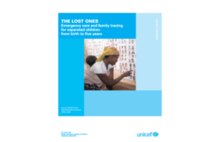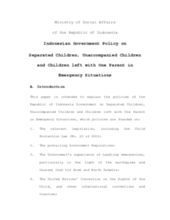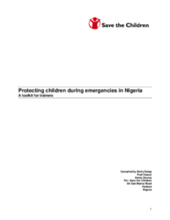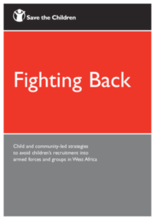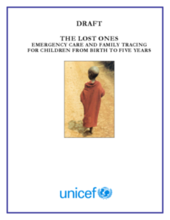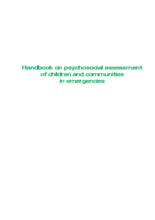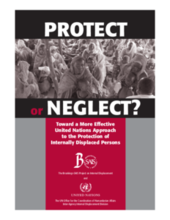Displaying 171 - 180 of 199
A manual primarily concerned with the prevention of separation of children during emergencies. It provides a field-oriented guide to solve problems specific to emergency care and tracing and family reunification of babies and children five years and younger.
Indonesian policy paper on the practice principles for separated and unaccompanied children in an emergency, including guidance on short and long-term care arrangements, tracing, and family reunification
A comprehensive training toolkit for organizations and individuals who are directly involved in child protection and welfare during emergencies. Covers key topics related to children in emergencies, and includes learning points, classroom and field exercises, suggested itineraries and handouts.
A paper with guidelines for keeping children with families and providing proper care and protection for them. It provides examples and plans for those interested in planning care for separated children.
A research study which explores strategies used by children, families and communities to prevent child recruitment into armed forces.
Guidelines for the care of young children separated from their families in emergencies. Includes detailed information on prevention of separation, child registration and documentation, and family reunification.
Examines the use of cash and vouchers to provide people with assistance in emergency situations
Guidance on preventing child separation, interviewing separated children, and programming for their care and protection needs. Contains specific information on temporary and longer term care options.
A guidebook focusing on the assessment to be conducted when an emergency first hits or just after a major event in an armed conflict. Outlines the preparation needs of an assessment team and describes what an assessment should concentrate on.
A paper that makes recommendations (based on field work) to the UN, NGOs and governments for a more effective international system to care for internally displaced persons.

